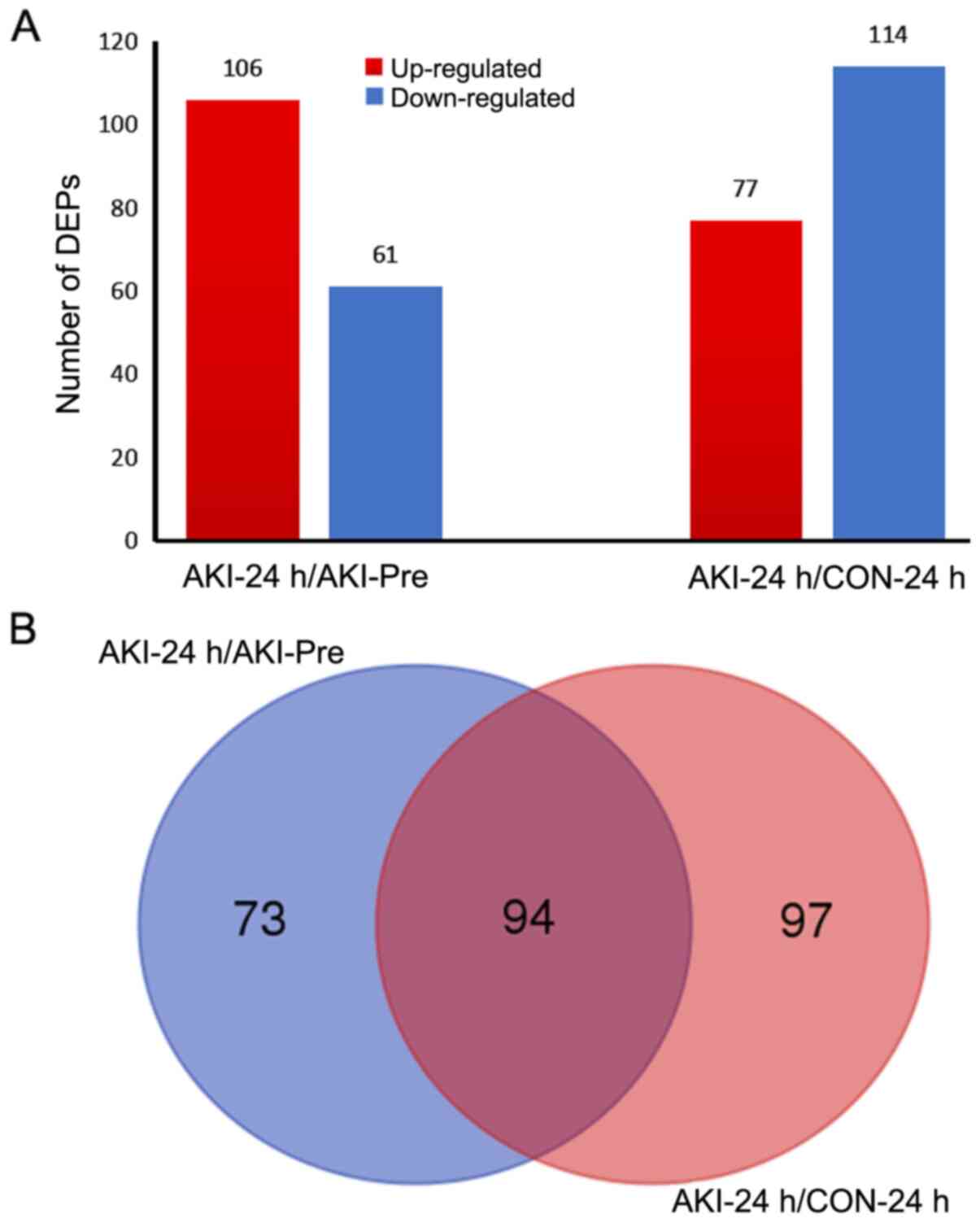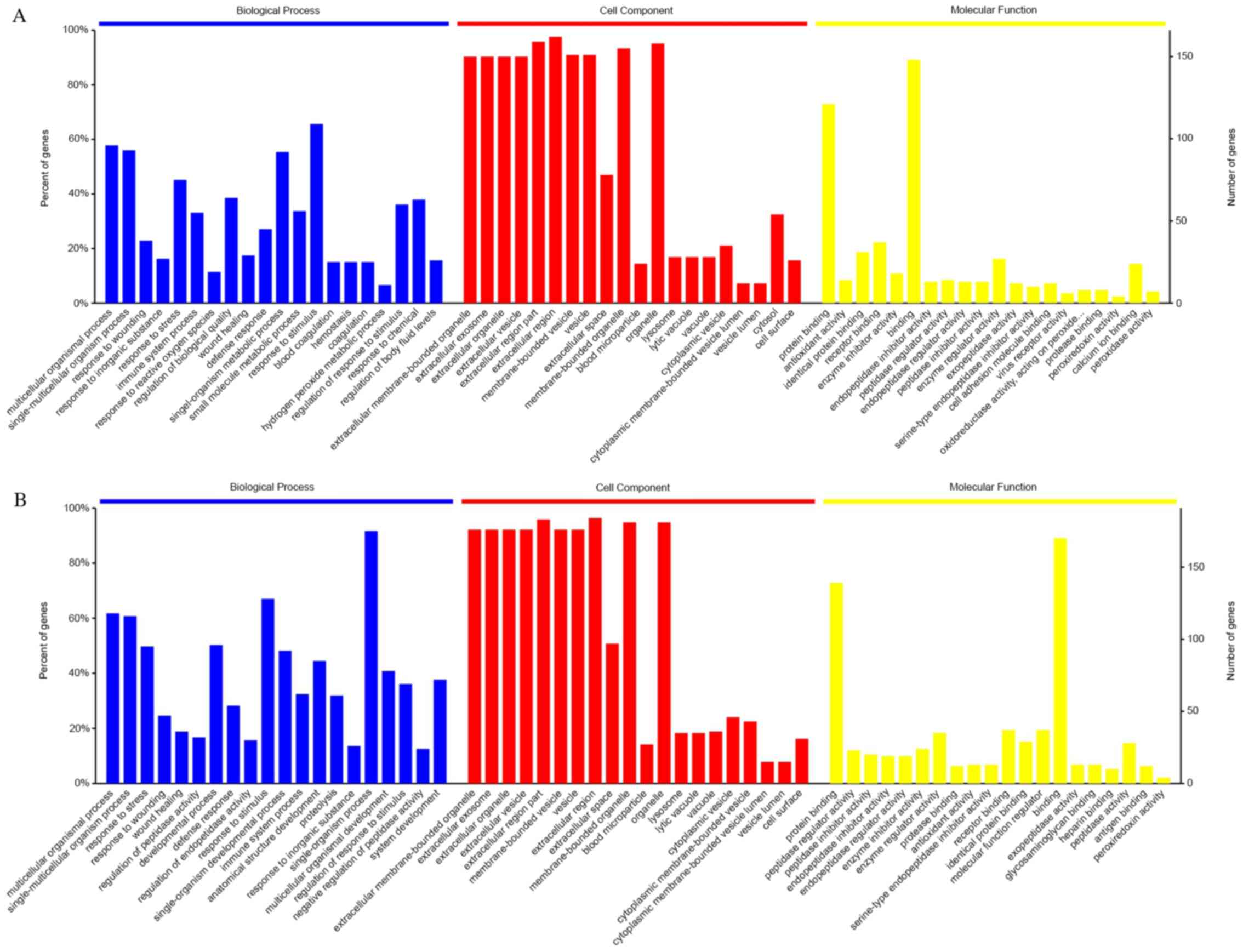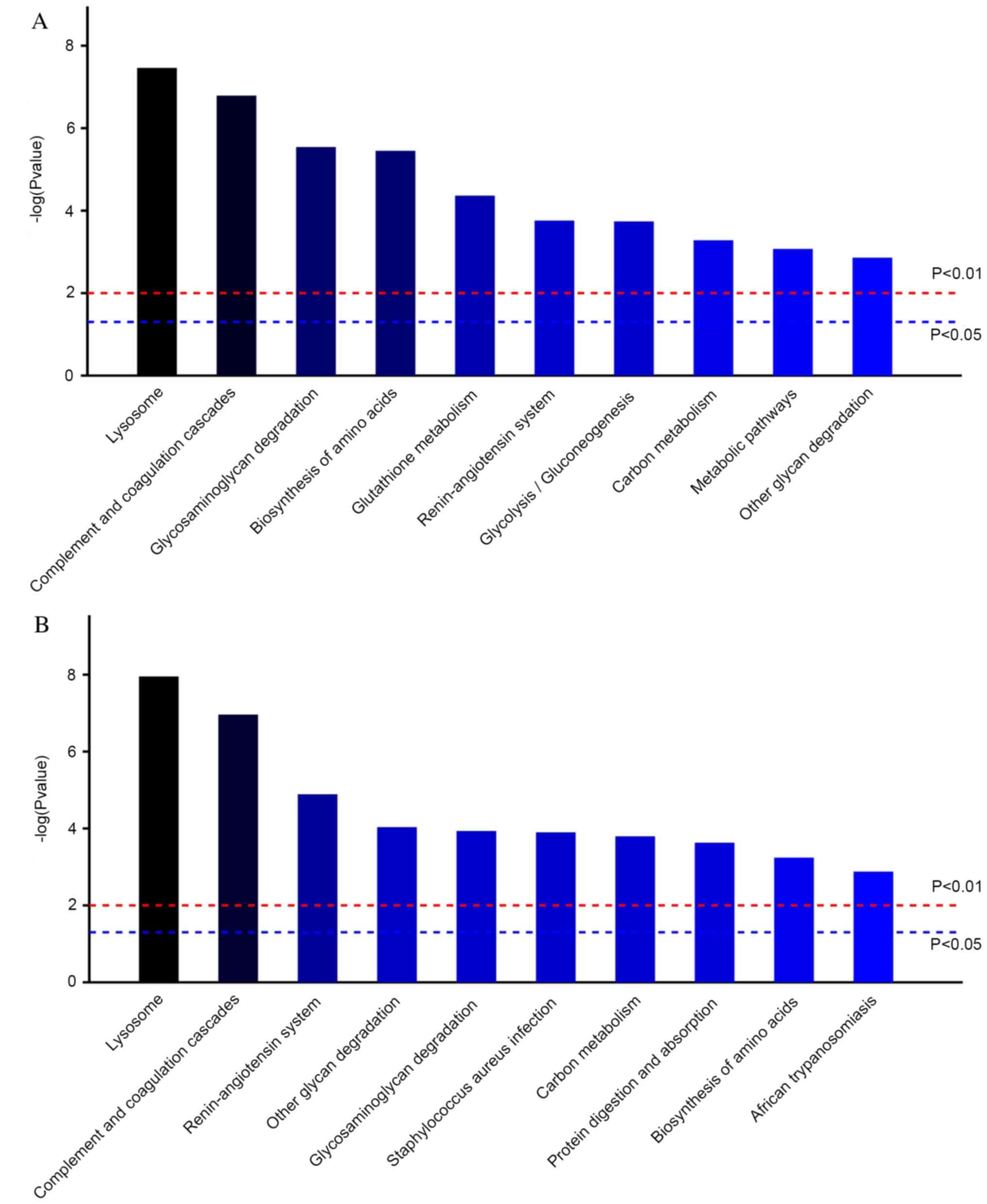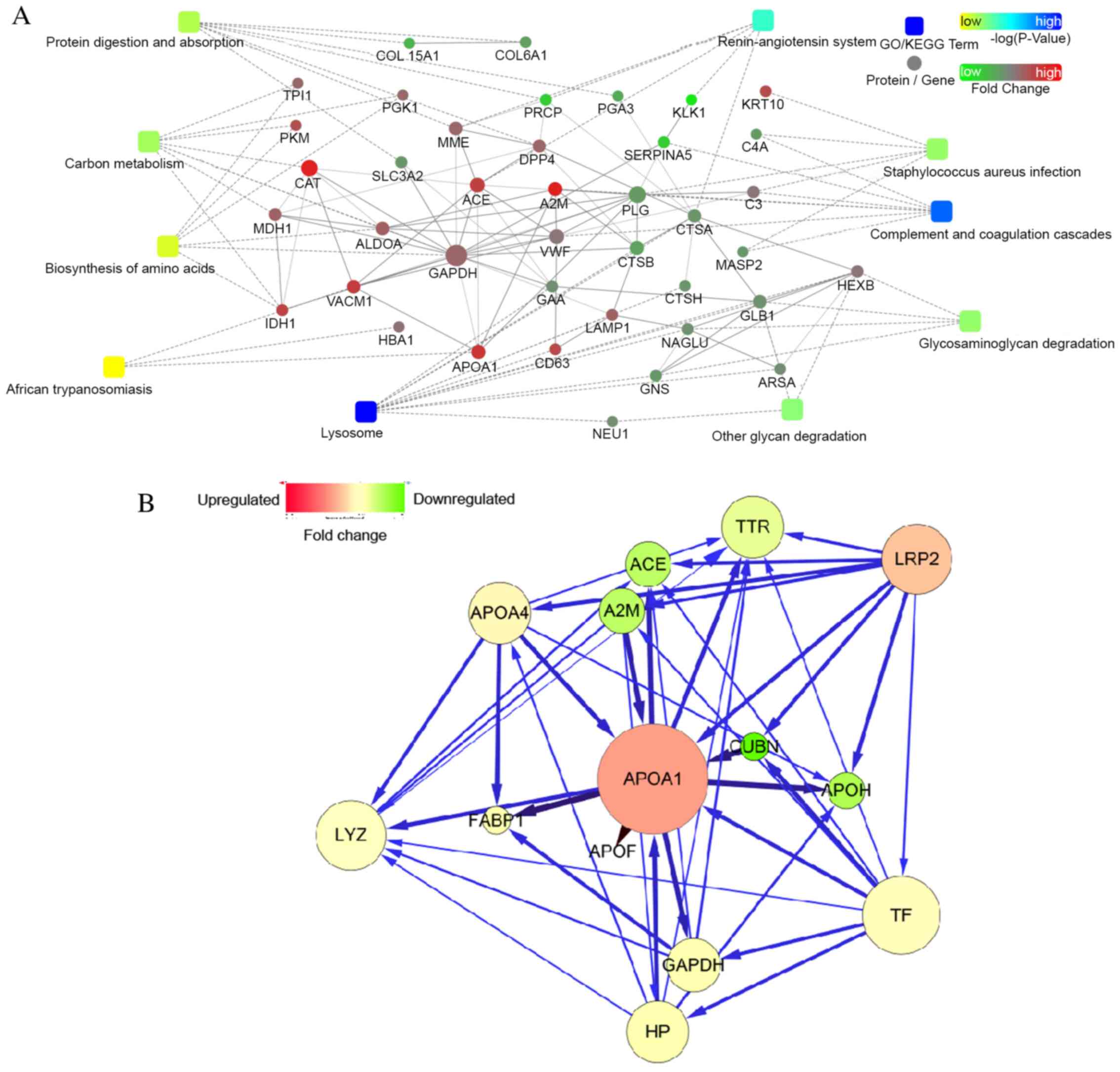|
1
|
Ozkok S and Ozkok A: Contrast-induced
acute kidney injury, A review of practical points. World J Nephrol.
6:86–99. 2017.PubMed/NCBI View Article : Google Scholar
|
|
2
|
Chalikias G, Drosos I and Tziakas DN:
Prevention of contrast-induced acute kidney injury: An update.
Cardiovasc Drugs Ther. 30:215–228. 2016.PubMed/NCBI View Article : Google Scholar
|
|
3
|
Fähling M, Seeliger E, Patzak A and
Persson PB: Understanding and preventing contrast-induced acute
kidney injury. Nat Rev Nephrol. 13:169–180. 2017.PubMed/NCBI View Article : Google Scholar
|
|
4
|
McCullough PA, Choi JP, Feghali GA,
Schussler JM, Stoler RM, Vallabahn RC and Mehta A: Contrast-induced
acute kidney injury. J Am Coll Cardiol. 68:1465–1473.
2016.PubMed/NCBI View Article : Google Scholar
|
|
5
|
Mamoulakis C, Tsarouhas K, Fragkiadoulaki
I, Heretis I, Wilks MF, Spandidos DA, Tsitsimpikou C and Tsatsakis
A: Contrast-induced nephropathy: Basic concepts, pathophysiological
implications and prevention strategies. Pharmacol Ther. 180:99–112.
2017.PubMed/NCBI View Article : Google Scholar
|
|
6
|
Andreucci M, Faga T, Riccio E, Sabbatini
M, Pisani A and Michael A: The potential use of biomarkers in
predicting contrast-induced acute kidney injury. Int J Nephrol
Renovasc Dis. 9:205–221. 2016.PubMed/NCBI View Article : Google Scholar
|
|
7
|
Luo Q, Zhou F, Dong H, Wu L, Chai L, Lan K
and Wu M: Implication of combined urinary biomarkers in early
diagnosis of acute kidney injury following percutaneous coronary
intervention. Clin Nephrol. 79:85–92. 2013.PubMed/NCBI View
Article : Google Scholar
|
|
8
|
De Loor J, Gevaert K, Hoste E and Meyer E:
How has urinary proteomics contributed to the discovery of early
biomarkers of acute kidney injury? Expert Rev Proteomics.
11:415–424. 2014.PubMed/NCBI View Article : Google Scholar
|
|
9
|
Sigdel TK, Gao Y, He J, Wang A, Nicora CD,
Fillmore TL, Shi T, Webb-Robertson BJ, Smith RD, Qian WJ, et al:
Mining the human urine proteome for monitoring renal transplant
injury. Kidney Int. 89:1244–1252. 2016.PubMed/NCBI View Article : Google Scholar
|
|
10
|
Luczak M, Formanowicz D, Marczak Ł,
Suszyńska-Zajczyk J, Pawliczak E, Wanic-Kossowska M and Stobiecki
M: iTRAQ-based proteomic analysis of plasma reveals abnormalities
in lipid metabolism proteins in chronic kidney disease-related
atherosclerosis. Sci Rep. 6(32511)2016.PubMed/NCBI View Article : Google Scholar
|
|
11
|
Rao S, Walters KB, Wilson L, Chen B,
Bolisetty S, Graves D, Barnes S, Agarwal A and Kabarowski JH: Early
lipid changes in acute kidney injury using SWATH lipidomics coupled
with MALDI tissue imaging. Am J Physiol Renal Physiol.
310:F1136–F1147. 2016.PubMed/NCBI View Article : Google Scholar
|
|
12
|
Park HS, Kim CJ, Hwang BH, Kim TH, Koh YS,
Park HJ, Her SH, Jang SW, Park CS, Lee JM, et al: HDL cholesterol
level is associated with contrast induced acute kidney injury in
chronic kidney disease patients undergoing PCI. Sci Rep.
6(35774)2016.PubMed/NCBI View Article : Google Scholar
|
|
13
|
Smith LE, Smith DK, Blume JD, Linton MF
and Billings FT IV: High-Density Lipoprotein cholesterol
concentration and acute kidney injury after cardiac surgery. J Am
Heart Assoc. 6(e006975)2017.PubMed/NCBI View Article : Google Scholar
|
|
14
|
Shi T, Song E, Nie S, Rodland KD, Liu T,
Qian WJ and Smith RD: Advances in targeted proteomics and
applications to biomedical research. Proteomics. 16:2160–2182.
2016.PubMed/NCBI View Article : Google Scholar
|
|
15
|
Kidney Disease: Improving Global Outcomes
(KDIGO) Acute Kidney Injury Work Group: KDIGO clinical practice
guideline for acute kidney injury. Kidney Int Suppl. 2:1–138.
2012.
|
|
16
|
Levey AS, Stevens LA, Schmid CH, Zhang YL,
Castro AF III, Feldman HI, Kusek JW, Eggers P, Van Lente F, Greene
T, et al: A new equation to estimate glomerular fltration rate. Ann
Intern Med. 150:604–612. 2009.PubMed/NCBI View Article : Google Scholar
|
|
17
|
Michael H, Justin D and Virginia E:
Current state of the art for enhancing urine biomarker discovery.
Expert Rev Proteomics. 13:609–626. 2016.PubMed/NCBI View Article : Google Scholar
|
|
18
|
Chen Y, Mao P and Wang D: Quantitation of
intact proteins in human plasma using top-down parallel reaction
monitoring-MS. Anal Chem. 90:10650–10653. 2018.PubMed/NCBI View Article : Google Scholar
|
|
19
|
Andreucci M, Faga T, Pisani A, Sabbatini M
and Michael A: Acute kidney injury by radiographic contrast media:
Pathogenesis and prevention. Biomed Res Int.
2014(362725)2014.PubMed/NCBI View Article : Google Scholar
|
|
20
|
Moreira RS, Irigoyen M, Sanches TR,
Volpini RA, Camara NO, Malheiros DM, Shimizu MH, Seguro AC and
Andrade L: Apolipoprotein A-I mimetic peptide 4F attenuates kidney
injury, heart injury, and endothelial dysfunction in sepsis. Am J
Physiol Regul Integr Comp Physiol. 307:R514–R524. 2014.PubMed/NCBI View Article : Google Scholar
|
|
21
|
Thiemermann C, Patel NS, Kvale EO,
Cockerill GW, Brown PA, Stewart KN, Cuzzocrea S, Britti D,
Mota-Filipe H and Chatterjee PK: High density lipoprotein (HDL)
reduces renal schemia/reperfusion injury. J Am Soc Nephrol.
14:1833–1843. 2003.PubMed/NCBI View Article : Google Scholar
|
|
22
|
Li Y, Dong JB and Wu MP: Human ApoA-I
overexpression diminishes LPS-induced systemic inflammation and
multiple organ damage in mice. Eur J Pharmacol. 590:417–422.
2008.PubMed/NCBI View Article : Google Scholar
|
|
23
|
van der Vorst EPC: High-density
lipoproteins and apolipoprotein A1. Subcell Biochem. 94:399–420.
2020.PubMed/NCBI View Article : Google Scholar
|
|
24
|
Tanaka S, Couret D, Tran-Dinh A, Duranteau
J, Montravers P, Schwendeman A and Meilhac O: High-density
lipoproteins during sepsis: From bench to bedside. Crit Care.
24(134)2020.PubMed/NCBI View Article : Google Scholar
|


















